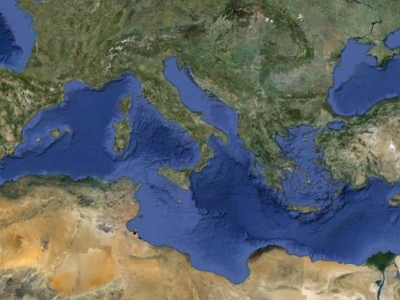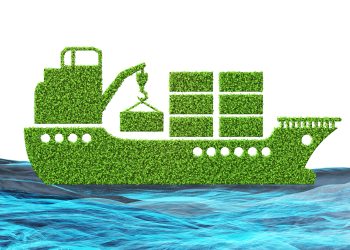New EU study finds an opportunity for Blue Growth
A new study presented by the European Commission finds that the establishment of maritime zones, including Exclusive Economic Zones (EEZs), in the Mediterranean would benefit the EU’s Blue Growth and wider sustainability agendas. The study looks at the costs and benefits of establishing maritime zones in the Mediterranean and provides an analysis of the impacts of establishing EEZs on different sea-based activities. EEZs could allow for a more effective spatial planning policy, which in turn could help attract investments and further economic activities.
Maria Damanaki, European Commissioner for Maritime Affairs and Fisheries stated: “There are huge untapped opportunities in the Mediterranean Sea, which could come to fruition by establishing Exclusive Economic Zones (EEZs). The proclamation and establishment of maritime zones remains the sovereign right of each coastal State. It is our joint EU responsibility to ensure that the right conditions are in place for the blue economy to flourish. Mediterranean coastal states could agree on their maritime zones on the basis of the United Nations Convention on the Law of the Sea (UNCLOS).”
The study focuses on the opportunities which EEZs and other similar zones would bring in terms economic costs and benefits, sustainability and governance of marine space and should be viewed in the context of the European Commission’s Blue Growth agenda.
The EU Blue Growth Strategy aims at creating sustainable economic growth and employment in the marine and maritime economy to help Europe’s economic recovery. These economic sectors provide jobs for 5.4 million people and contribute a total gross value added of around 500 billion euros. By 2020, these should increase to 7 million and nearly 600 billion euros respectively. It highlights the five areas with the greatest potential for growth: blue energy, aquaculture, maritime, coastal and cruise tourism, marine mineral resources and blue biotechnology.
Maritime zones and the law of the sea
The rights of coastal States to claim maritime zones derive from international law, the body oflaw that regulates the rights and duties of States and other actors, such as internationalorganisations, recognised by international law. The law of the sea is the branch ofinternational law that is concerned with all uses and resources of the sea. The cornerstone ofthe law of the sea is the United Nations Convention on the Law of the Sea (UNCLOS).
With the exception of Libya, Israel, Syria and Turkey, all of the Mediterranean coastal Statesare party to UNCLOS as is the EU. The provisions in UNCLOS on maritime zones are,however, generally accepted to be declaratory of customary international law.
Maritime zones under UNCLOS :the figure does not showinternal waters landward of baselines
Within its territorial sea, which may extend up to 12 nautical miles (nm) from the baseline, acoastal State has sovereignty, together with broad prescriptive and enforcement jurisdiction,subject to the right of ‘innocent passage’ by foreign vessels. Beyond the territorial sea acoastal State may claim a contiguous zone that can extend to 24 nm from the baseline forcustoms, fiscal, immigration and sanitary enforcement purposes. A coastal State may alsoapply specific rules to prevent the unauthorised removal of archaeological and historicalobjects within its contiguous zone.
The potential impacts of establishing EEZs and/or derivative zones in theMediterranean Sea
The potential legal impacts of establishing EEZs in the Mediterranean are summarised in inthe following table:
|
Activites to be affected |
Impact | Comments |
| Safety of navigation & vessel source pollution | Very significant impact |
Although the establishment of an EEZ or relevant derivative zone would not allow a coastal State to unilaterally adopt and impose rules relating to the safety of navigation or vessel source pollution within that zone it would permit the coastal State to enforce rules relating to the safety of navigation and vessel source pollution adopted at the international level through IMO within the EEZ or relevant derivative zone through the application of sanctions against vessels/vessel owners. |
| Fisheries | Very significant impact |
Under international law the establishment of an EEZ or relevant derivative zone enables a coastal State to adopt and enforce rules relating to management measures and regulating access to fisheries by third country vessels within such a zone. Non-EU flagged vessels could be excluded from the EEZs or relevant derivative zones of EU Member States although pursuant to the CFP EU flagged vessels could not. Management rules would be adopted by the EU pursuant to the CFP although responsibility forenforcement would lie with the relevant coastal State Significant benefits as regards enforcement could be expected.
|
|
Maritime surveillance and security |
Impact |
In terms surveillance and security the impacts of establishing an EEZ or derivative zone would not be significant given that the increased rights of a coastal State would relate only to the exercise of the sovereign rights of the coastal State which relate primarily to economic activities (in particular fishing) and environmental protection. Other aspects of surveillance and security, such as terrorism and smuggling, would not be impacted by the establishment of an EEZ or relevant derivative zone. |
|
Environmental protection and MPAs |
Very significant impact |
The establishment of an EEZ or relevant derivative zone would have a potentially significant impact regarding environmental protection and the establishment of MPAs. In particular it would enable a coastal State to adopt and enforce environmental protection rules (other than as regards the safety of navigation and vessel source pollution) and to establish MPAs and to adopt and enforce rules relating to such MPAs, although in the case of EU Member States rules relating to fisheries in terms of MPAs would be made at the EU level. Moreover the impact of establishing EEZs or relevant derivative zones would be to expand the spatial scope of EU environmental protection legislation leading to an improved level of environmental protection for the Mediterranean albeit increased implementation and enforcement costs. |
|
Exploitation of non-living resources |
No identifiable substantive impact |
The establishment of an EEZ or relevant derivative zone would have no substantive legal impact given that these activities, namely oil and gas extraction, are already subject to the continental shelf regime. |
| Dumping | No identifiable substantive impact |
The establishment of an EEZ or relevant derivative zone would have no substantive legal impact given that dumping is already subject to the continental shelf regime. |
|
Laying of pipelines and cables |
No identifiable substantive impact |
The establishment of an EEZ or relevant derivative zone would have no substantive legal impact given that the laying of pipelines and cables is already subject to the continental shelf regime |
|
Offshore renewable energy |
No identifiable substantive impact |
It is hard to see how the establishment of an EEZ or relevant derivative zone substantive impact given that such activities would in practice also be subject to the continental shelf regime. |
|
Military activities |
Impact |
Although it is doubtful that the establishment of an EEZ or relevant derivative zone would have significant direct impacts in terms of the holding of military exercises by third countries, the rights of third countries to undertake military exercises within such a zone in practice such countries may be deterred from so doing if MPAs have been established there |
|
Marine scientific research |
Significant impact |
The establishment of an EEZ or relevant derivative zone would have a potentially significant impact on marine scientific research in the Mediterranean due to the need to obtain the prior consent of the coastal State. Although such consent should in principle be forthcoming in practice delays and an increased level of uncertainty will likely negatively impact research in those parts of the Mediterranean that are currently subject to the regime of the high seas |
| Wrecks and other historical sites | No identifiable substantive impact |
The establishment of an EEZ or relevant derivative zone would have no substantive impact given that wrecks and historical sites are already subject to the continental shelf regime |
Whilst the Mediterranean is complex physically and in terms of governance, groupings ofrelatively similar situations can be discerned. The Western Basin is simpler than the Easternwith less constricted coastlines and fewer archipelagos. However, in both the Western andEastern basins the situation of the southern states is similar with relatively uncomplicated,unconstricted coastlines with relatively few islands so, with regard to the issues, the situationof the southern countries from Algeria to Egypt is reasonably consistent. This also may be thecase for the Levant. From this viewpoint it would be possible to select representativecountries, particularly those exemplifying particular activities or where data is best available,as a series of case studies to analyse in detail the costs and benefits of setting up andadministering an EEZ. Each case would relate to the groupings of issues outlined above.
The final report and executive summary of the study may be found at EUROPA studies section Costs and benefits arising from the establishment of maritime zones in the Mediterranean Sea


































































